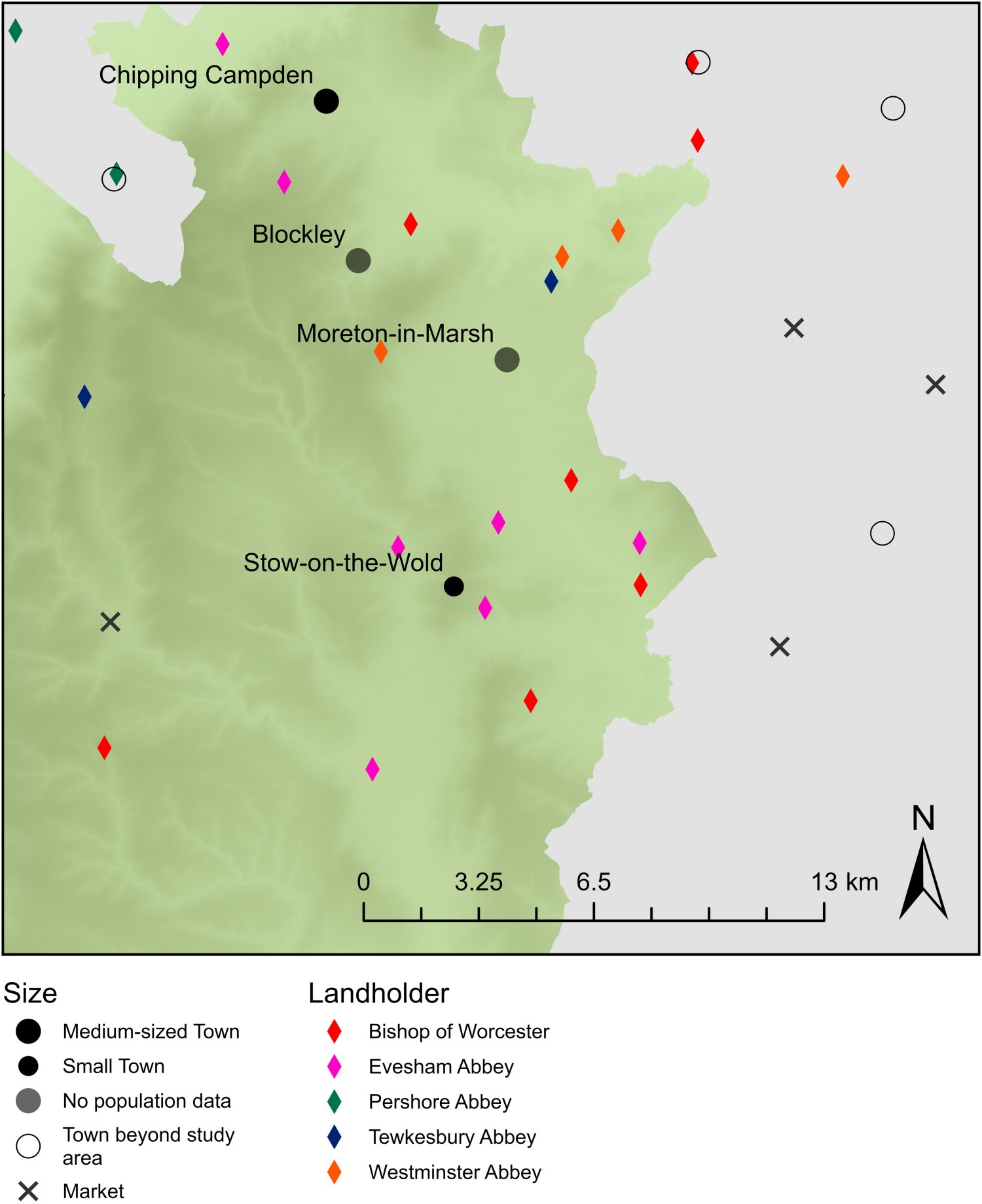Author: Ben Jervis
Abstract:
DESPITE THEIR UBIQUITY, the character and function of small towns in medieval England continues to provoke debate. These places, situated at the intersection of urban and rural life, are ambiguous and display a high degree of diversity. Drawing upon recent analyses of modern European small towns, I propose a new approach to this debate. The paper begins with an assessment of the potential and limitations of hierarchical approaches to medieval towns, with it proposed that such approaches distinguish small towns by what they lack in relation to larger centres, rather than understanding them as a distinctive type of place. An analysis of towns in relation to their size and proximity to other towns is presented, using a case study of 12th–15th century Gloucestershire and Wiltshire. This demonstrates the variability of these towns, and reveals some of the factors which underpin this diversity. The paper closes with a consideration of how we might perceive urbanisation as a process of difference-making, as an alternative to approaches which neutralise difference through hierarchical or typological classification.
Published on Medieval Archaeology, Volume 69, Issue 1, 2025
Open access and free to download:
https://doi.org/10.1080/00766097.2025.2504286
Map showing the relationship of Cotswold towns to institutional landholding in 1086. Drawing by author.


